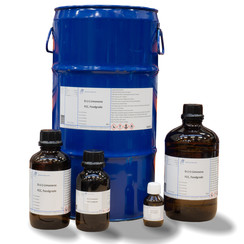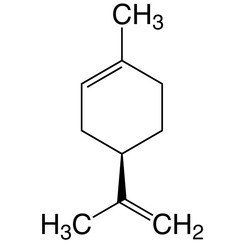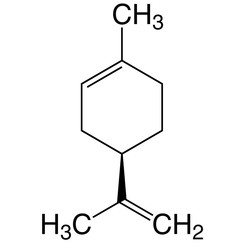You have no items in your shopping cart
Limonene
Limonene is a colorless liquid aliphatic hydrocarbon classified as a cyclic monoterpene, and is the major component in the oil of citrus fruit peels. The D-isomer, occurring more commonly in nature as the fragrance of oranges, is a flavoring agent in food manufacturing. It is also used in chemical synthesis as a precursor to carvone and as a renewables-based solvent in cleaning products. The less common L-isomer is found in mint oils and has a piny, turpentine-like odor. The compound is one of the main volatile monoterpenes found in the resin of conifers, particularly in the Pinaceae, and of orange oil.
Limonene takes its name from French limon ("lemon"). Limonene is a chiral molecule, and biological sources produce one enantiomer: the principal industrial source, citrus fruit, contains D-limonene ((+)-limonene), which is the (R)-enantiomer. Racemic limonene is known as dipentene. D-Limonene is obtained commercially from citrus fruits through two primary methods: centrifugal separation or steam distillation.



